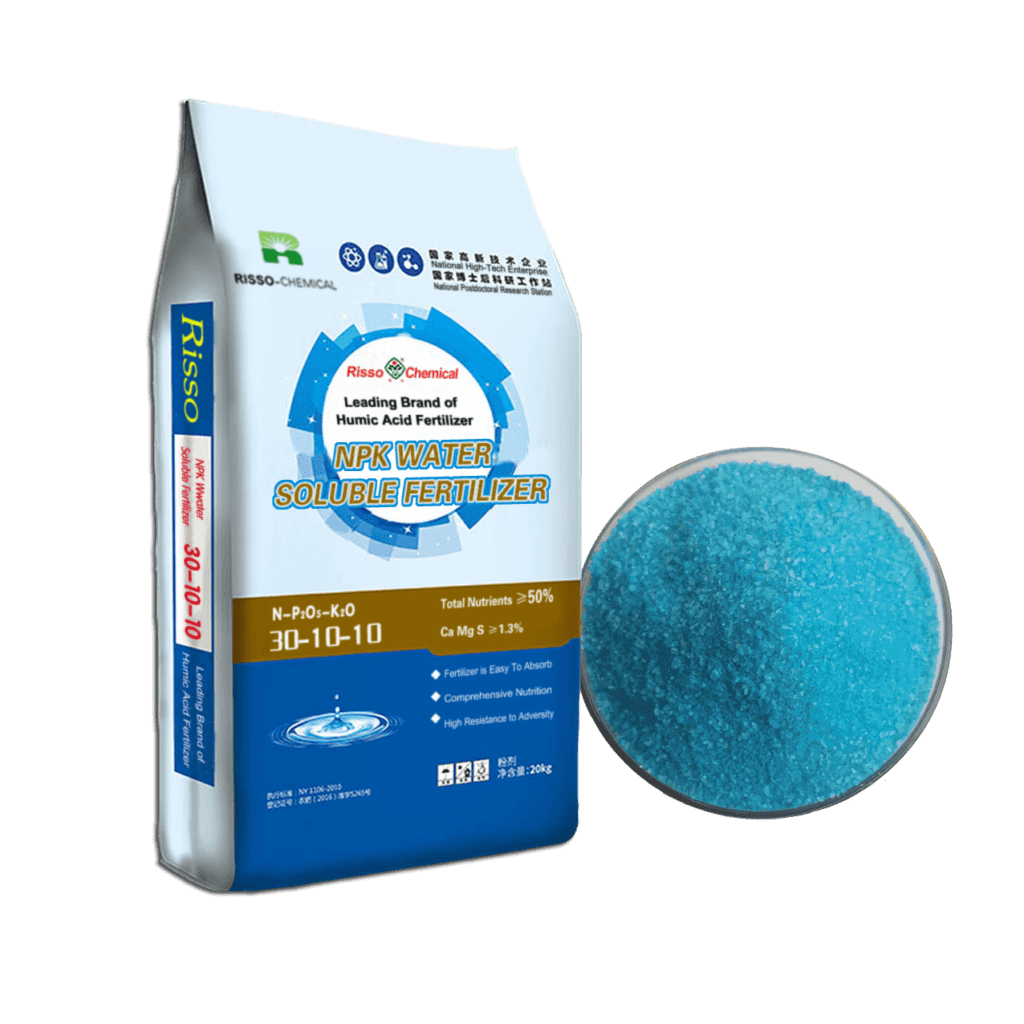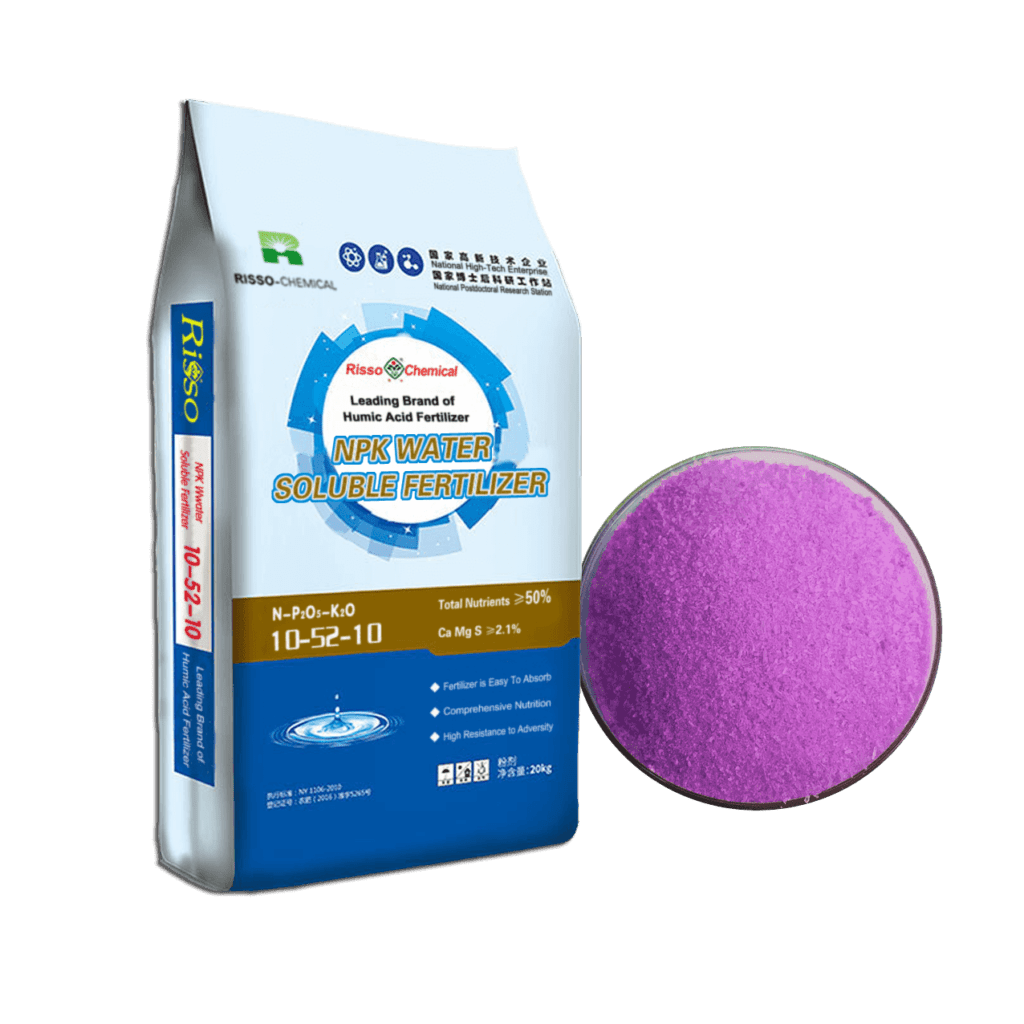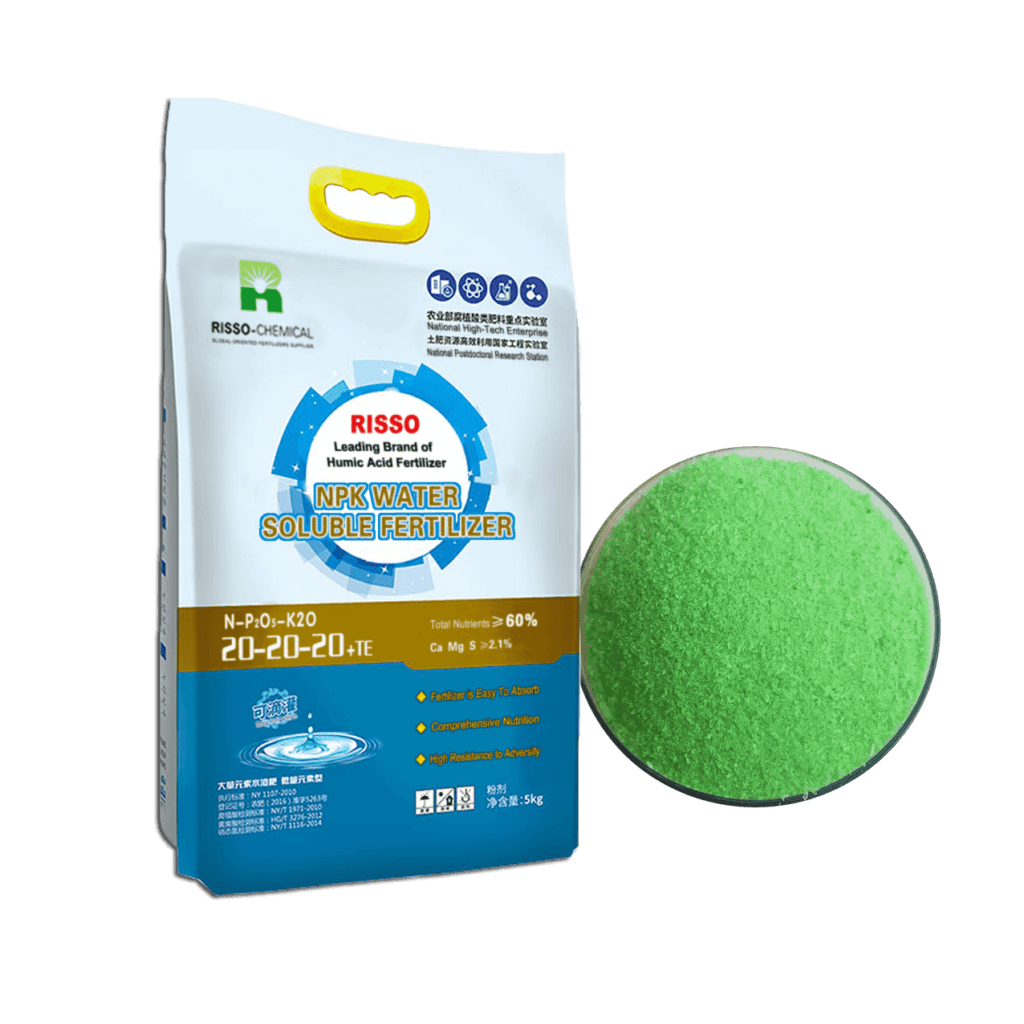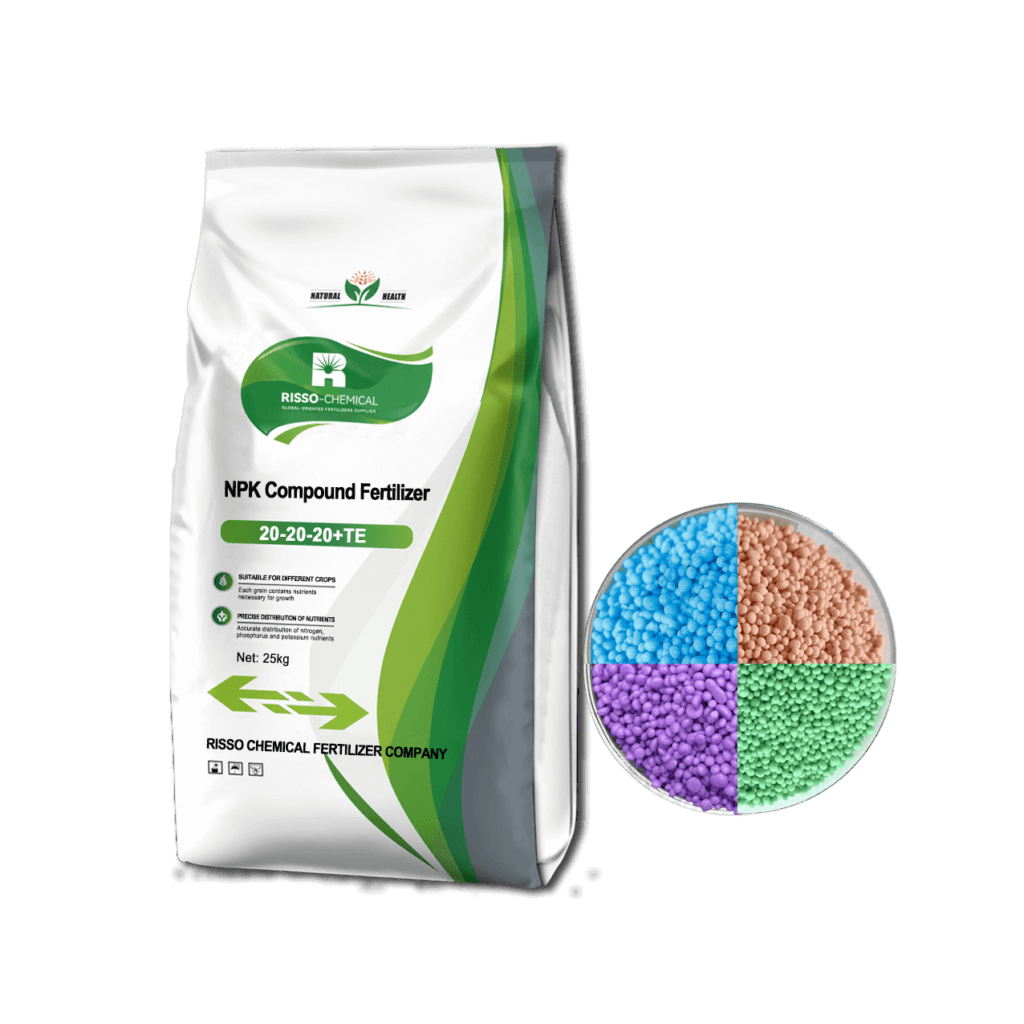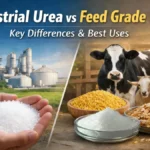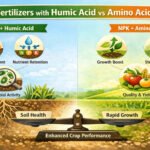Let more growers get greater benefits
What is a good NPK ratio: A Comprehensive Guide
- Industry News
- October 15, 2016
- 9:15 am


Selecting the correct NPK ratio—the balance of Nitrogen (N), Phosphorus (P), and Potassium (K)—is one of the most critical decisions in modern agriculture and horticulture. These three macronutrients are the backbone of plant nutrition, each fulfilling vital roles in growth and development. However, there is no universal “best” NPK ratio, as the ideal balance depends on multiple factors such as crop type, growth stage, and environmental conditions.
This comprehensive guide aims to provide professionals with a deeper understanding of how to choose the right NPK formulation to maximize crop productivity and optimize soil health. By focusing on the specialized formulations offered by Risso Fertilizers, we’ll delve into how tailored NPK ratios can address specific agronomic needs.
List of Contents
Understanding NPK and Its Functions
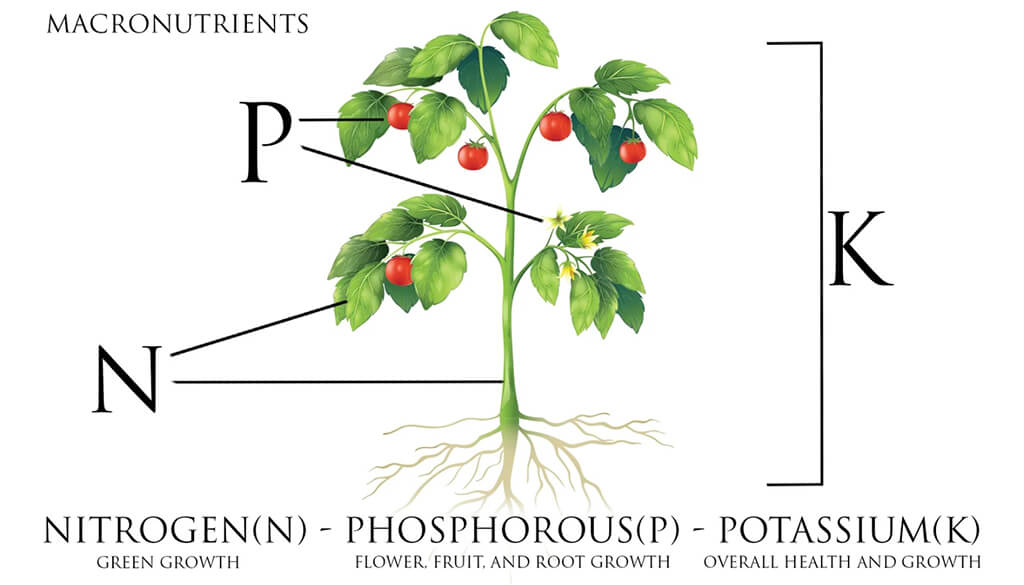

1. Nitrogen (N) – Vital for Vegetative Growth
Nitrogen is essential for chlorophyll production, which facilitates photosynthesis. It fuels vegetative growth by promoting the development of leaves and stems. Plants that exhibit rapid foliar growth, such as leafy vegetables, grasses, and cereals, often require higher nitrogen inputs. Insufficient nitrogen can lead to stunted growth and yellowing of leaves (chlorosis), while excessive nitrogen may cause overly lush foliage, making the plant more susceptible to diseases and reducing fruit or flower development.
2. Phosphorus (P) – The Foundation for Root and Flower Development
Phosphorus plays a crucial role in energy transfer within plants through the formation of ATP (adenosine triphosphate). It is vital for root development, flowering, and seed production. A phosphorus deficiency typically results in slow growth, delayed maturity, and poor root systems. Crops like legumes, fruiting plants, and root vegetables thrive when phosphorus is adequately supplied, especially during the early growth stages and bloom periods.
3. Potassium (K) – Regulator of Water Balance and Stress Resistance
Potassium is indispensable for regulating water uptake and maintaining plant turgidity. It also enhances disease resistance, improves fruit quality, and increases drought tolerance. Potassium deficiencies often result in reduced disease resistance, weak stems, and poor overall crop quality. Crops such as fruit trees, tubers, and flowering plants require substantial potassium levels for optimal yield and quality.
Common NPK Ratios and Their Uses
20-20-20 (Balanced Fertilizer)
A 20-20-20 formulation offers an equal distribution of nitrogen, phosphorus, and potassium, making it a versatile choice across various crop types and growth stages. This balanced fertilizer supports uniform growth, making it especially beneficial for crops requiring consistent nutrition throughout their lifecycle. At Risso Fertilizers, our water-soluble 20-20-20 formula ensures rapid nutrient absorption, enhancing productivity in high-intensity farming systems such as hydroponics or drip irrigation.
10-52-10 (Phosphorus-Heavy for Early Growth and Blooming)
This high-phosphorus formula is ideal for early-stage plant development and during flowering. Risso Fertilizers’ 10-52-10 product is perfect for crops requiring extensive root systems, such as tomatoes, peppers, and root vegetables. It’s also beneficial for flowering plants, enhancing bud formation and bloom duration. Our water-soluble 10-52-10 can be used effectively in fertigation systems, providing fast-acting phosphorus that directly impacts root and flower development.
15-15-15 (All-Purpose Fertilizer for Maintenance)
15-15-15 is a more moderate, all-purpose fertilizer designed for steady growth and long-term maintenance. This formulation provides balanced nutrition without overloading the soil with excess nutrients. It is ideal for lawns, ornamental gardens, and general-purpose agricultural crops that require slow, sustained feeding. The granular form of Risso Fertilizers’ 15-15-15 makes it easy to apply for large-scale agricultural use, ensuring even distribution across wide fields.
30-10-10 (Nitrogen-Heavy for Lush Growth)
For crops where rapid vegetative growth is the goal, such as grasses, leafy greens, or cereals, a nitrogen-heavy formula like 30-10-10 is optimal. Nitrogen accelerates the development of foliage, enabling plants to capture more sunlight and photosynthesize at a higher rate. Excessive nitrogen, however, can inhibit root growth and reduce flowering, so it is best applied during the early vegetative stage and in crops grown for their leaves.
Choosing the Right NPK Ratio for Your Crop
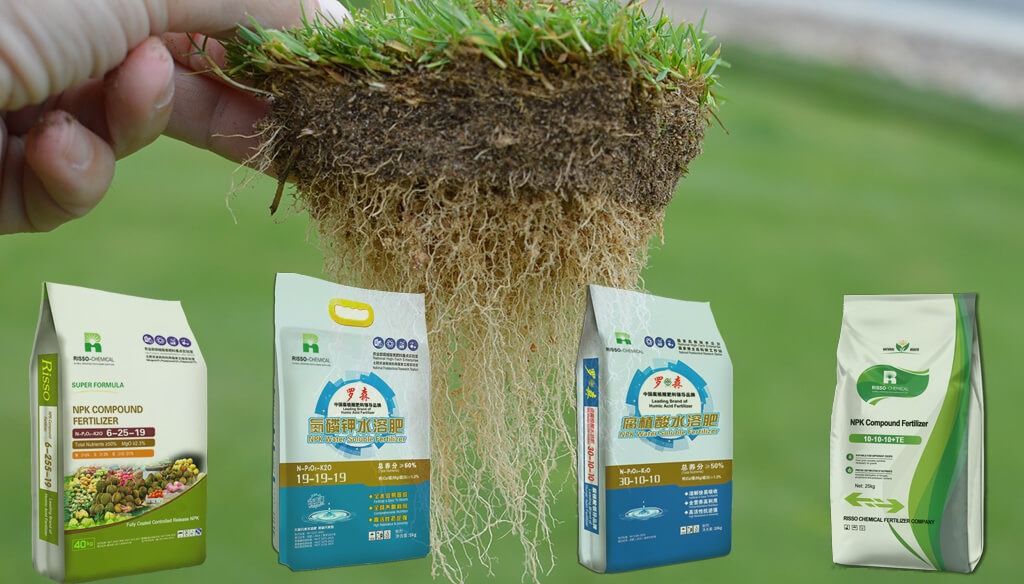

For Leafy Greens and Cereals
Crops such as spinach, kale, and lettuce prioritize nitrogen uptake for leaf growth. The right formulation, such as 30-10-10, can significantly enhance leaf biomass, resulting in higher yields. Cereals, such as wheat and corn, also benefit from nitrogen-heavy formulas during their early stages to encourage rapid growth and increased tillering.
For Root Vegetables and Tubers
Carrots, potatoes, and other root crops thrive when phosphorus is emphasized. A formula like 10-52-10 promotes deep, robust root systems, which are critical for high yields in these crops. Excessive nitrogen in these crops may result in too much top growth, diverting energy away from root formation.
For Fruiting Vegetables and Orchards
Tomatoes, peppers, and fruit trees need a balanced or slightly potassium-heavy formula to enhance fruit set and quality. A ratio such as 10-20-30 or 10-15-20 helps boost fruit quality by ensuring a balance between vegetative growth and fruit production. Potassium improves the size, color, and flavor of fruits while also enhancing the plant’s tolerance to environmental stresses.
For Lawns and Turf
Grassy areas, including lawns and sports fields, require a consistent nitrogen supply to maintain lush, green growth. A balanced formulation like 15-15-15 ensures steady nutrient availability, while higher nitrogen products like 30-10-10 may be employed for rapid green-up in spring or after periods of dormancy.
For Flowering Plants and Ornamentals
For ornamental plants, especially those grown for blooms, a high-phosphorus formula like 10-30-20 can significantly enhance flowering. Phosphorus encourages bud development, while potassium improves flower color and longevity, making this ratio ideal for flowering shrubs, bulbs, and garden flowers.
How to Apply Water-Soluble Fertilizers
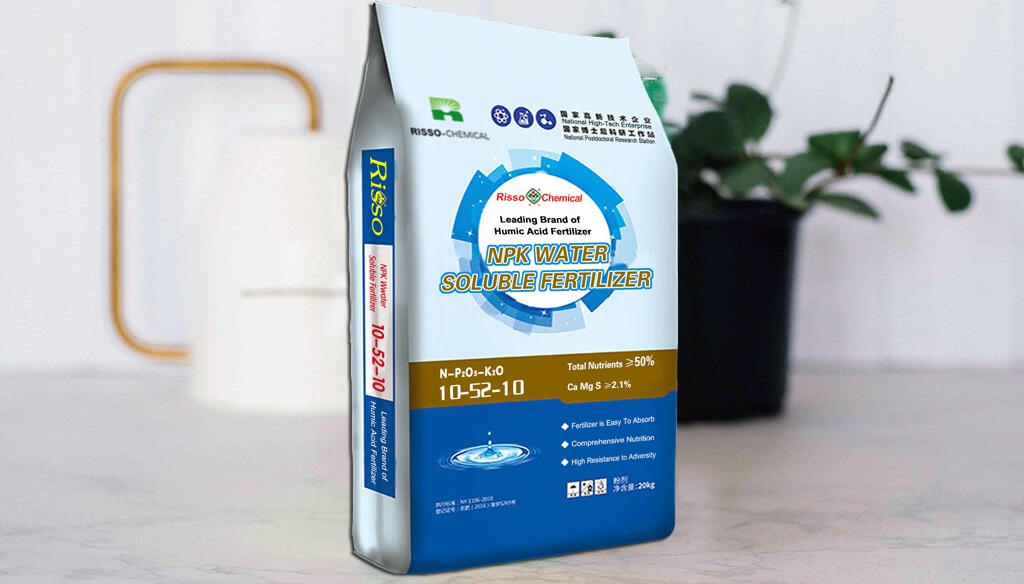

Water-soluble fertilizers provide immediate nutrient availability to plants, making them an excellent choice for intensive farming systems such as hydroponics, greenhouse production, and fertigation. At Risso Fertilizers, our water-soluble formulations are engineered for rapid uptake, ensuring plants receive the nutrients they need exactly when they need them.
- Proper Dilution: Always dilute fertilizers according to the manufacturer’s recommendations to prevent nutrient burn.
- Frequent Application: For crops with high nutrient demands, frequent but light applications are preferable to prevent over-fertilization and leaching.
- Monitor Soil pH: The solubility and availability of phosphorus can be heavily influenced by soil pH. Acidic or alkaline conditions may necessitate soil amendments to maximize the efficacy of your fertilizer application.
Conclusion
Choosing the optimal NPK ratio is a multifaceted decision that hinges on the specific nutritional needs of your crops, the stage of their growth, and environmental factors. Risso Fertilizers offers a wide range of specialized NPK formulations that cater to various agricultural applications, ensuring that you can maximize both crop health and yield potential.
For tailored guidance on selecting the right NPK ratio for your farm, or to learn more about our water-soluble and compound fertilizer products, contact the Risso Fertilizers team. We are committed to helping you achieve agricultural success through innovative and scientifically backed fertilization solutions.
Fertilizer Related Products
If you want to know other questions about NPK Ratio or NPK fertilizers , please contact us and we will provide professional answers.
- Article
What will you get when touch?
✔ Quick & helpful reply within 6 hours.
✔ Tailored solutions for your project.
✔ One-stop product, tech, market
TRENDING
Want to find a China fertilizer manufacturer?
Risso will be your best choice; send us your request for your fertilizer details requirement
TAIAN RISSO CHEMICAL FERTILIZER CO.,LTD.
- Address: High-tech Development Zone, Taian City, Shandong Province
© Copyright 2017 RISSO CHEMICAL. All Rights Reserved.



